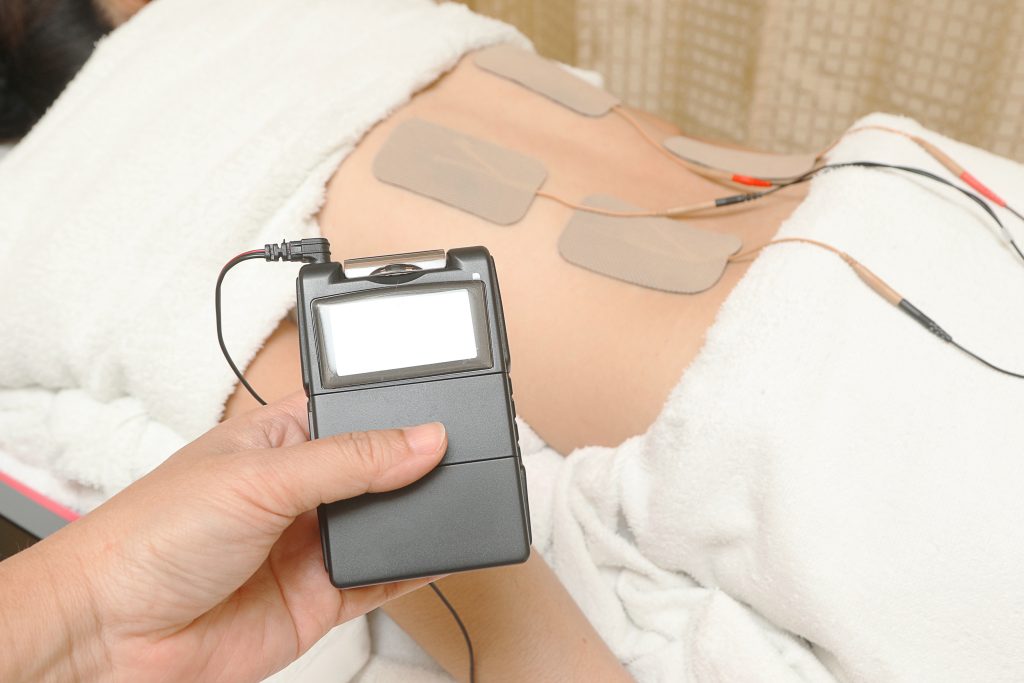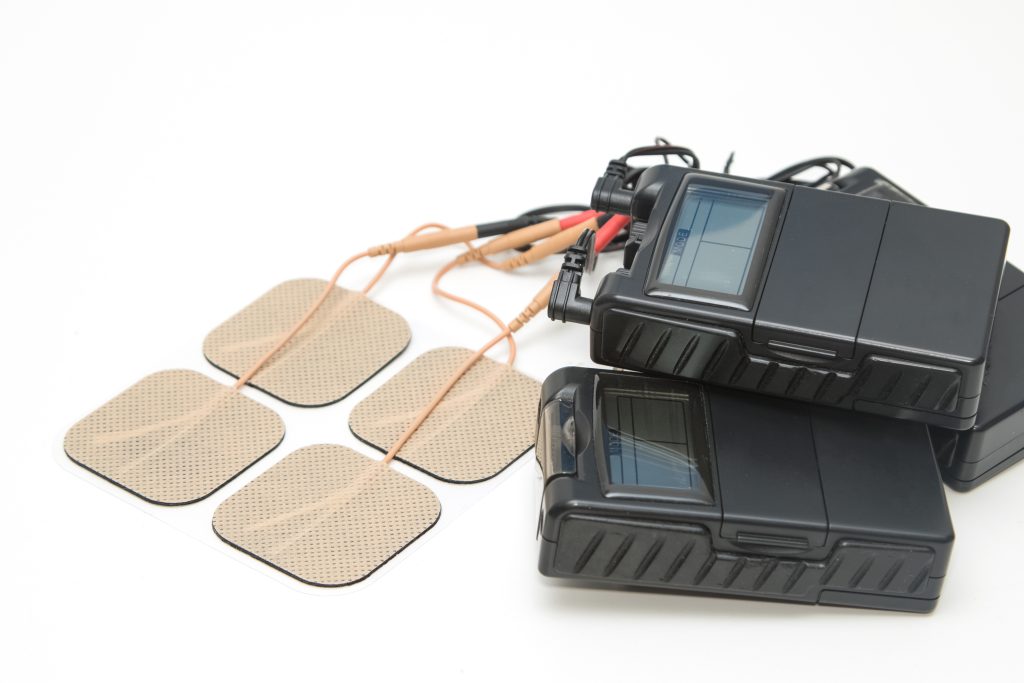
TENS is a form of electrical stimulation with electrodes often used to treat pain. Is it effective? Generally, yes, but it depends on your situation. If you’re wondering if it suits you, read on to learn more about its benefits and risks.
What Is Transcutaneous Electrical Nerve Stimulation (TENS)?
TENS is a non-invasive, drug-free treatment that uses electrical impulses to block pain signals from reaching the brain. An electrical current travels to the nerve fibers in your skin. The stimulation blocks the pain signals and helps you regain control over it.
Treatment Parameters
Controls on a TENS unit let people adjust the electrical current to achieve an appropriate level of pain relief.
- Intensity: It can vary from 0-60 milliamps (mA) on most units. It should feel tingly and may cause a tingling sensation. You can adjust the intensity of electrical stimulation with a dial.
- Frequency refers to how many electrical pulses go through per second. The frequency can be as low as 2 Hz or as high as 60 Hz. 150 Hz is standard. The therapist can alter the frequency.
- The pulse shape is usually rectangular.
- A pulse width is measured in microseconds and varies between 100 and 500us.
- The duration is the time the current enters the skin during each pulse.
What Is TENS Used For?
TENS can provide relief for many different types of chronic pain, including:
- back pain
- shoulder pain
- lower back muscle spasms caused by childbirth or injury
- arthritis and joint conditions such as osteoarthritis (OA), rheumatoid arthritis (RA), and fibromyalgia
- other neurological diseases like Parkinson’s disease
- post-surgical recovery
- sciatica/radiculopathy due to lumbar disc herniation/rupture at L4-5 level etc
How To Use?

TENS machines are small, battery-powered devices with electrodes attached to leads. You’ll need to turn off the machine before you use the tens pads. The rubber electrodes are secured with adhesive tape and covered with conductive gel. Put the tens pads on your skin in the area of pain. You can hide the wires connecting the tens pads to the unit with clothes.
Never place the tens pads over:
- On either side or front of your neck
- The temple areas
- Eyes or mouth
- Your upper back and chest at the same time
- Skin that’s irritated, infected, or broken
- varicose veins
- Numb areas
- swollen or tender bony prominences or joints
Tens pads placement technique:
- Unilateral: The placement of one limb or half of a muscle pair unilaterally causes inflammation.
- Bilateral: You can stimulate both halves of a muscle pair at once
- Uni-polar: Only one lead and the electrode are placed over the target area.
- Quadripolar: Using two sets of electrodes, each with its channel.
What Happens During A TENS Session?
TENS is a pain relief therapy that uses electrical impulses to stimulate the nerves. It doesn’t cure your condition but can help relieve your symptoms.
TENS is not a substitute for other treatments such as medication, surgery, or physiotherapy. Consult your doctor before starting TENS therapy.
If you decide to use TENS at home, speak to a nurse about the right equipment for you and how long you need to use it daily.
Benefits
TENS stimulates the nerves with low-voltage electrical currents, which transmit impulses to the brain. Your nervous system sends messages from your body to your brain and vice versa. When these electrical signals are disrupted by physical injury or chronic pain, they can cause an overload. That results in pain signals going to the brain at a higher frequency, making your body feel more pain than it is experiencing.
By stimulating those nerves using TENS therapy, you’re taking control back from your central nervous system and decreasing the amount of pain signals it sends out!
Possible Side-Effects
People may experience side effects, including:
- a slight tingling sensation and muscle twitching
- muscle fatigue and soreness
- skin irritation
- redness at the site of the electrodes
When To Avoid
Check with your doctor before using if you have:
- If you have a pacemaker
- You shouldn’t use it if you have a history of epilepsy.
- A skin condition that affects the nervous system (e.g., neurofibromatosis)
- heart failure
- high blood pressure, or other severe medical conditions
Trying TENS
Consult your GP about a physiotherapist or pain clinic if you consider TENS. For the best results, make sure the settings are right for you.
Buying TENS Machine
We live in an age of convenience. If you want to buy something, you don’t have to go out and find it. You can order it online and have it delivered.
If you’re living in the UAE, Gulf Physio is a great place to buy TENS machines and electrodes. The prices are very reasonable and have an excellent delivery service. So that you can get your products delivered directly to your door. For more information about the products, head over to www.gulfphysio.com.
A Note From Gulf Physio
We hope you’ve enjoyed learning about the subject matter above. This blog post is not a substitute for medical advice. The author cannot guarantee the accuracy of the information presented. If you have any questions or concerns, please consult a healthcare professional. All decisions and actions you make are your own. No one involved in making this resource is liable for its use.



